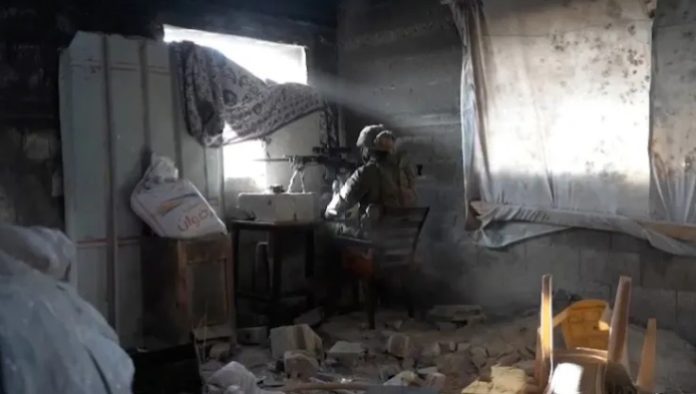The Israeli military said Monday it would begin withdrawing several thousand troops from the Gaza Strip.
The Israeli army cited the growing burden on the Israeli economy after nearly three months of mobilisation under wartime conditions with little or no cessation of fighting. Israel was already considering winding down its operations, with the United States urging it to do so more quickly as the death toll and hardship in Gaza rose.
More than 20,000 Palestinians have died in Gaza since the war began, most of them civilians, according to local health authorities, mostly as a result of Israeli bombardment. With aid deliveries limited and aid workers unable to move safely through the territory, half of Gaza’s estimated 2.2 million residents are at risk of starvation, the UN said.
Rear Admiral Daniel Hagari, a spokesman for the Israeli military, said the demobilisation of part of the army did not mean abandoning Israel’s intention to continue fighting until Hamas is destroyed and the fighting in Gaza remains intense. Admiral Hagari, who said he expected “military action throughout this year,” said some troops would be called back into service in 2024.
He made no mention of US requests for a drawdown, and Israeli officials have not announced a shift to a more limited, focused phase of the Gaza war, although they have said such a shift would occur. However, military analysts and U.S. officials say the withdrawal probably signals the beginning of such a change, though they warn that the war is far from over.
Reservists from at least two brigades will be sent home this week, the Israeli military said in a statement, while three brigades will return for “routine” training. The brigades come in varying numbers, up to about 4,000 troops, and the Israeli military has not disclosed how many troops it has deployed to Gaza, so it is unclear how many will remain. The military said:
This move is expected to significantly alleviate economic burdens and enable them to gather strength for upcoming activities in the next year.
Israel launched its campaign following a Hamas-led attack on Israel on 7 October in which some 1,200 people were killed and more than 240 taken hostage, according to Israeli authorities. In response, the Israeli army has regularly launched intensive air and artillery strikes. It authorised the mobilisation of more than 350,000 reservists for the war effort.
